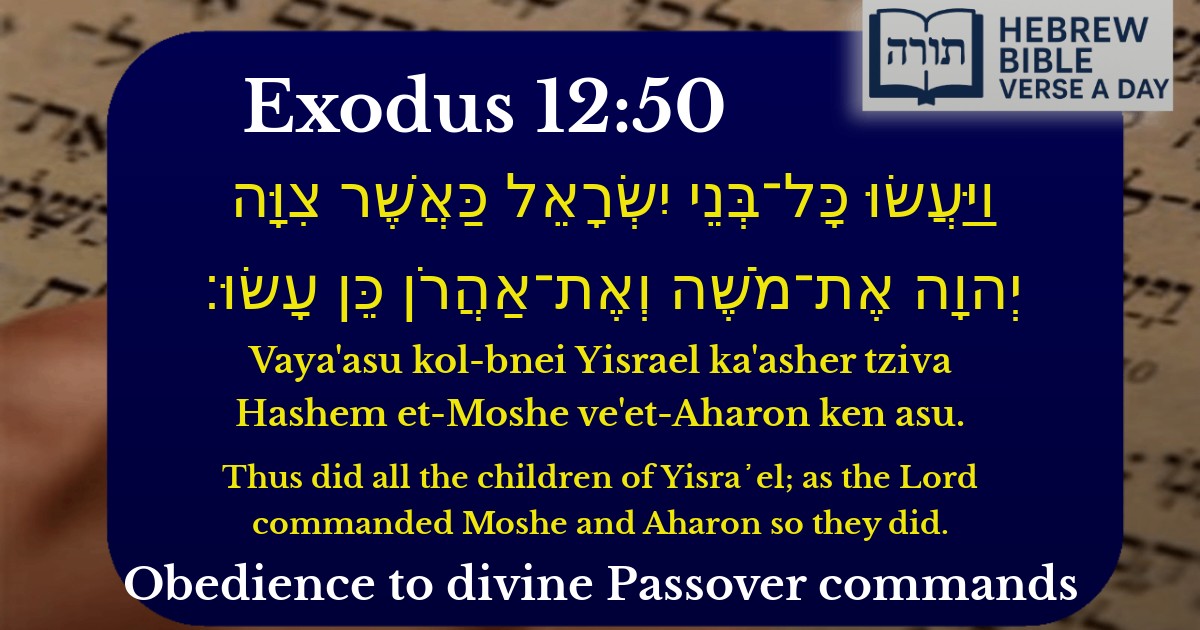Join Our Newsletter To Be Informed When New Videos Are Posted
Join the thousands of fellow Studends who rely on our videos to learn how to read the bible in Hebrew for free!
Hebrew Text
וַיַּעֲשׂוּ כָּל־בְּנֵי יִשְׂרָאֵל כַּאֲשֶׁר צִוָּה יְהוָה אֶת־מֹשֶׁה וְאֶת־אַהֲרֹן כֵּן עָשׂוּ׃
English Translation
Thus did all the children of Yisra᾽el; as the Lord commanded Moshe and Aharon so they did.
Transliteration
Vaya'asu kol-bnei Yisrael ka'asher tziva Hashem et-Moshe ve'et-Aharon ken asu.
Hebrew Leining Text
וַֽיַּעֲשׂ֖וּ כׇּל־בְּנֵ֣י יִשְׂרָאֵ֑ל כַּאֲשֶׁ֨ר צִוָּ֧ה יְהֹוָ֛ה אֶת־מֹשֶׁ֥ה וְאֶֽת־אַהֲרֹ֖ן כֵּ֥ן עָשֽׂוּ׃ <span class="mam-spi-samekh">{ס}</span>
וַֽיַּעֲשׂ֖וּ כׇּל־בְּנֵ֣י יִשְׂרָאֵ֑ל כַּאֲשֶׁ֨ר צִוָּ֧ה יְהֹוָ֛ה אֶת־מֹשֶׁ֥ה וְאֶֽת־אַהֲרֹ֖ן כֵּ֥ן עָשֽׂוּ׃ {ס}
🎵 Listen to leining
Parasha Commentary
📚 Talmud Citations
This verse is not quoted in the Talmud.


Literal Meaning (Peshat)
The verse states that Bnei Yisrael meticulously followed the commandments given by Hashem through Moshe and Aharon. Rashi (Shemot 12:28) emphasizes that this demonstrates their complete obedience and readiness to fulfill the divine will without hesitation or deviation.
Midrashic Interpretation (Derash)
The Midrash (Mechilta Bo 12) highlights that the phrase "כֵּן עָשׂוּ" ("so they did") appears redundant, teaching that Bnei Yisrael not only performed the mitzvot but did so with the kavanah (proper intent) and exactness as commanded. This reflects their elevated spiritual state during the Exodus.
Halachic Insight
Rambam (Hilchot Chametz U'Matzah 7:1) derives from this verse the importance of performing mitzvot precisely as instructed, without adding or omitting details. The repetition of "כַּאֲשֶׁר צִוָּה" ("as commanded") underscores the obligation to adhere strictly to halachic requirements.
Spiritual Lesson